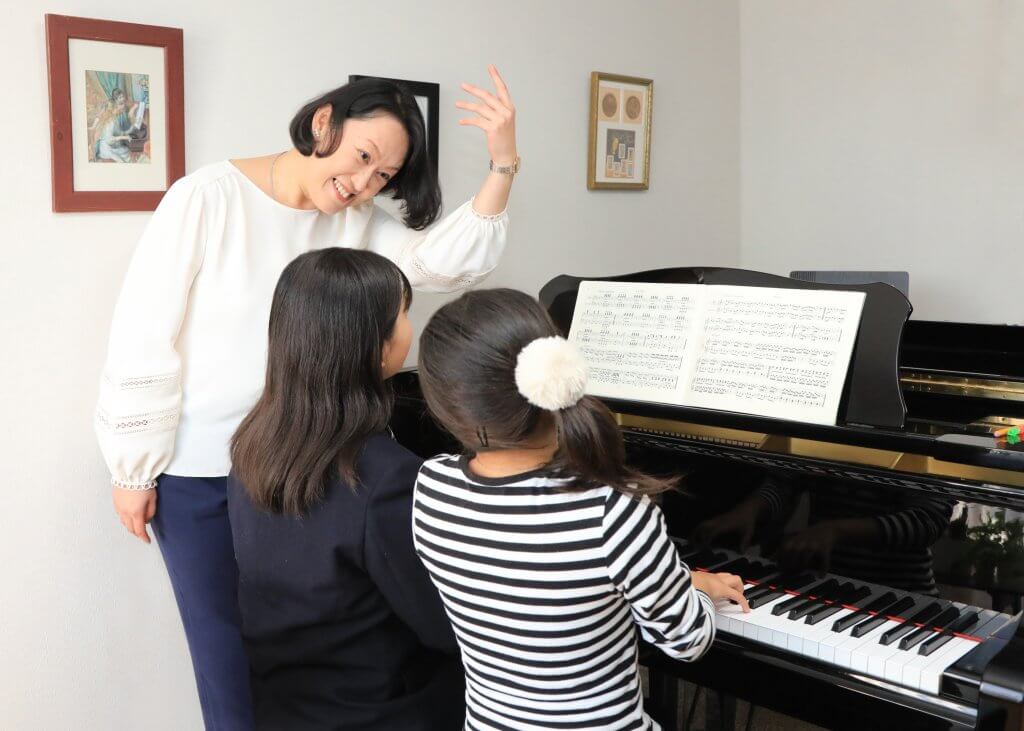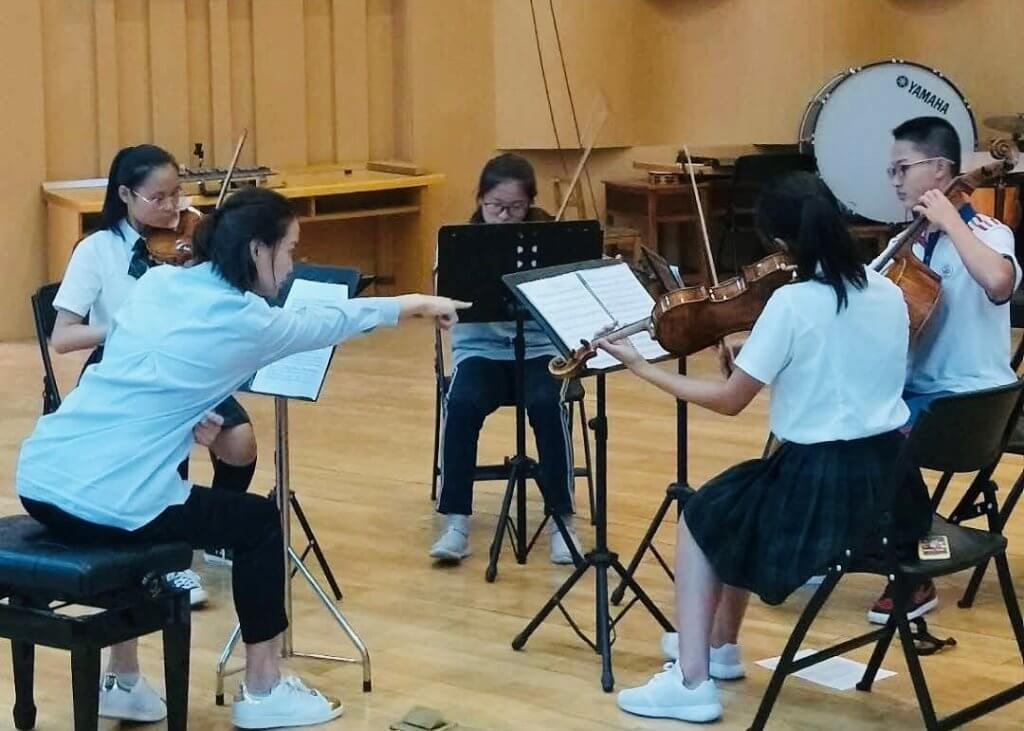Ensemble
Chamber music is one of the great ways to communicate with others through music. By playing chamber music, students develop musicianship and gain valuable communication skills. BMA will assign students to form groups such as duos, piano trios, and string ensembles. Chamber music sessions will be three months long, with performance opportunities at studio classes and recitals.


Chamber Music
Playing chamber music can help:
1. Listening skills
Developing listening skills by listening to own and others’ sounds actively.
2. Musicianship
Enhancing abilities as a musician performing and presenting music.
3. Rhythm
Improving the sense of rhythm. Rhythm is what keeps everyone on the same page, so players need to follow the notation correctly.
4. Harmony
Developing the ability to grasp the overall picture and structure of music.
5. Intonation
Playing with a partner will increase your awareness and ability to play in tune.
6. Communication skills
Improving communication skills. Polite and efficient communication is the key to a group’s success.
7. Team-work
Improving the ability to work with others.
8. Leadership
Cultivating leadership by taking the lead.
9. Responsibility
Developing a strong sense of responsibility. A group only functions when everyone takes responsibility for their individual role.
10. Making music more fun!
Making friends and exploring various repertoire together.
Chamber Music class: ¥15,000/hr/group
Sonata Class
This class is designed for intermediate and advance level of music student or adult student (Pianists, Violinists, Violists) who wants to learn and perform the Sonata repertoire (Piano + Violin/Viola). Piano students will perform with String faculty and String students will perform with Piano faculty. This class will help students gain a deeper and more comprehensive understanding of the sonata repertoire. By performing with experienced BMA faculty, students will be guided to ensemble preparation and performing.
Sonata Class : ¥12,000/hr